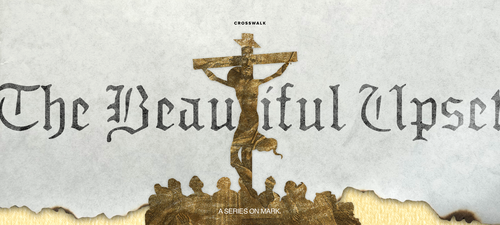CURRENT SERIES & STUDY GUIDES
Download Study Guides
INTRODUCTION
In the middle of Mark's Gospel we find Jesus, who has been teaching, healing, and confusing people for months. The crowds have been following Him, the religious leaders have been questioning Him, and His disciples have been trying to figure out who He really is. It’s at this point that Jesus stops being evasive about His identity and starts being really clear about His mission. And it's not at all what anyone expected.
"The Journey to the Cross" isn't just about what happened to Jesus two thousand years ago. It's about what happens to us when the God we think we understand turns out to be completely different from what we expected. It's about following a King whose crown is made of thorns, whose throne is a cross, and whose victory looks awfully like defeat.
Mark doesn't give us a comfortable Jesus. He gives us an unexpected King who challenges everything we think we know about power, success, and what it means to win. This journey will take us through confession and confusion, glory and struggle, greatness redefined and expectations shattered.
We'll discover that the cross isn't just the destination of Jesus' journey, it's the revelation of who He's been all along. The beautiful upset of a King who conquers by surrendering, and who saves the world by losing everything.
In the middle of Mark's Gospel we find Jesus, who has been teaching, healing, and confusing people for months. The crowds have been following Him, the religious leaders have been questioning Him, and His disciples have been trying to figure out who He really is. It’s at this point that Jesus stops being evasive about His identity and starts being really clear about His mission. And it's not at all what anyone expected.
"The Journey to the Cross" isn't just about what happened to Jesus two thousand years ago. It's about what happens to us when the God we think we understand turns out to be completely different from what we expected. It's about following a King whose crown is made of thorns, whose throne is a cross, and whose victory looks awfully like defeat.
Mark doesn't give us a comfortable Jesus. He gives us an unexpected King who challenges everything we think we know about power, success, and what it means to win. This journey will take us through confession and confusion, glory and struggle, greatness redefined and expectations shattered.
We'll discover that the cross isn't just the destination of Jesus' journey, it's the revelation of who He's been all along. The beautiful upset of a King who conquers by surrendering, and who saves the world by losing everything.

